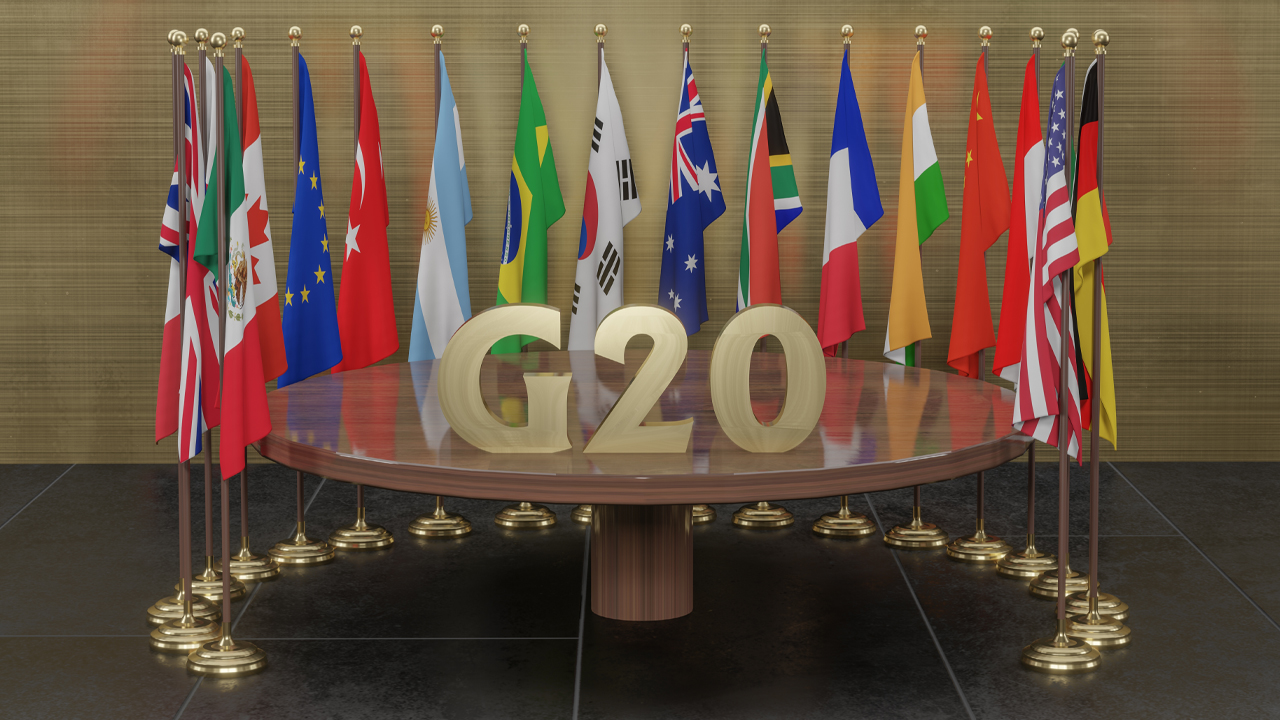
G20 Leaders’ Summit will take place on September 9-10 in New Delhi. In the discussions before the summit, India is expected to present a crypto guidance note summarizing all the work member countries have done on cryptocurrency. This guidance note is significant as it may form the basis of some outcomes from the Leaders’ Summit.
The synthesis paper by International Monetary Fund (IMF) and Financial Stability Board (FSB) is at the center of crypto discussions. These two organizations had been asked to create a synthesis paper based on which governments can formulate their policies. India’s guidance note in the capacity of G20 president will be the final attempt to synthesize the recommendations provided by IMF, FSB, and Bank for International Settlements (BIS).
Based on these discussions, the Leaders’ Summit is expected to make concrete decisions on cryptocurrencies, one of which could be agreeing to a roadmap for their regulation. It may also agree to a template, such as legislation for member countries to enact and follow.
So far, three G20 Finance Ministers and Central Bank Governors Meetings (FMCBGM) have taken place since India assumed G20 Presidency in December 2022. In all these meetings, cryptocurrencies were discussed prominently, with RBI Governor Shaktikanta Das once saying that some governments favor banning cryptocurrencies. India has actively participated in cryptocurrency discussions in all these meetings and pushed for an international consensus on regulating them. India argues that cryptocurrencies are, by default, cross-border entities, and the emerging challenges need to be dealt with through global cooperation.
On another note, in a significant development, global digital payments company PayPal announced the launch of its dollar-pegged stablecoin PayPal USD (PYUSD) on August 7. PayPal USD is reportedly fully backed by the US dollar reserves in banks, short-term treasurys, and other similar cash equivalents. PayPal said that the launch of PYUSD showcases its commitment to becoming a crypto payment major. At the moment, PYUSD is available to selected customers in the US.
As of March 2022, PayPal had 429 million active accounts and it processed $1.36 trillion in 2022, compared to $1.25 trillion in 2021. PayPal, which allowed its customers in the US and UK to buy, sell, and store cryptocurrencies in 2020, first announced its stablecoin plans in January 2022.
Given the high number of active accounts and the ease with which PayPal users can use its payment processing system, the availability of stablecoins on its platform can lead to its large-scale adoption of PYUSD. Right now, PayPal charges about 5% on international payments. If users choose PayPal’s stablecoin, which is 1:1 pegged to the dollar and can be converted right at the PayPal platform, the charges would practically vanish as transferring crypto is like sending an email albeit on a blockchain network.
PayPal’s entry into the $125 billion stablecoin market is considered the most important development in the crypto space. So far, crypto is mainly used by other crypto companies and professionals. But with PayPal entering the business, this scenario is in for a significant change. Here, a mainstream digital payments company is integrating and leveraging crypto.
Given how rapidly and in far-reaching ways the crypto industry is evolving, the lack of regulation underscores the need for governments to respond to this momentous change in the financial world. While regulations allow crypto firms to continue with their businesses as legal entities, it also fosters innovations and makes new technologies available to us.
Considering these realities, the upcoming G20 Leaders’ Summit could be an opportunity for G20 governments, which account for nearly 80% of the world economy, to make a serious step toward the future of money. For quite some time, discussions on how long the dollar can hold on to its reserve currency status and how soon BRICS might come up with an alternative currency have been going on. While these may still be discussed at political levels, payment processing giants – Visa, Mastercard, and PayPal have started integrating crypto to make their payment processing system faster, cost-efficient, and future-ready. It seems crypto can emerge as the consensus reserve currency when the top fiat currencies go to war. (IPA Service)
The post Coming G20 Summit May Provide A Big Push To Global Crypto Regulations first appeared on Latest India news, analysis and reports on IPA Newspack.


